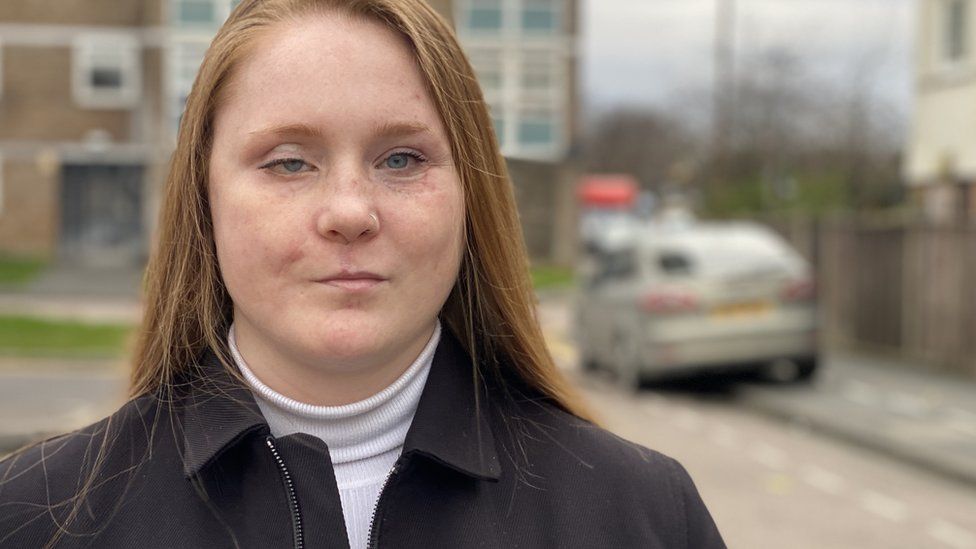
Shannon Brazier, 24, spent three weeks in a coma after being hit by a excavator on a building site in east London
By Jim Reed
Health reporter
For many people who have a serious blow to the brain, physical recovery is just the first of their problems. Depression and other mental disorders are far more likely to develop following head trauma.
The results of a small US study suggest taking a widely used antidepressant in the weeks after the injury could actually help prevent severe depression.
And now a much larger trial is being held across England, looking into whether those findings can be replicated in a wider group of patients.
'Lost hearing'
"I was told I was airlifted to the Royal London [Hospital] and put in a coma for three weeks," Shannon says. "They had to call my family down to say their goodbyes."
Shannon, 24, was hit on the side of her head by a digger while working on a building site in east London, in 2020. She needed operations to reconstruct parts of her face, using muscle from her legs. Pins and wires now hold her jaw together.
But, as with so many people who have lived through a traumatic brain injury, the visible, physical damage to her body was just part of the problem.
"It has had a real impact on my mental health and I have felt very low," Shannon says. "I wasn't going out, I wasn't taking care of myself and I put on weight.
"It has been a fight just to get out of bed and wash my face. It has been very difficult, almost unbearable at points."
In the immediate aftermath of such an accident, the focus has tended to be been on surgery, rehab and treating physical symptoms. But longer-term effects - such as depression and mood swings - can have a severe impact for many.
Shannon says it took "maybe a year" after leaving hospital to get the right support and medication in place and start to "pull out of it".
Image source, Shannon Brazier
Image caption,CT scans of Shannon's skull
Research suggests about half the people admitted to hospital after a head injury report major depression in the year after the accident, a rate 10 times higher than the general population.
The 18-month UK trial will examine the early use of common antidepressants following brain trauma. It will measure depression, quality of life and cognitive functioning among 500 patients, with results expected in 2027.
"Up until now, most of the research has been on the treatment of depression once it's set in, which we know can be difficult," says lead researcher Khalida Ismail, professor of psychiatry and medicine at King's College London.
"This is the first large-scale study in the world that is actually trying to prevent it from happening in the first place."
The trial is being held across nine major trauma centres in England and is being funded by a £2.2m grant from the National Institute for Health and Care Research.
Anxiety, mood, memory problems
A certain level of emotional trauma and stress might be expected after a catastrophic experience, with the knock-on effects on employment, education and relationships.
But doctors believe a serious blow to the head can also disrupt the neural pathways in the brain that control memory, thinking skills and emotions.
Sean Carty, 47, says he felt like he'd "landed on a new planet" after experiencing severe head trauma and depression.
He was knocked off his motorbike on a dual carriageway in London five years ago, leaving him in hospital for three weeks, with a bleed to the frontal lobe of his brain.
Sean Carty volunteers at the charity Headway East London, supporting others with traumatic brain injuries
"After I was discharged, I was trying to get back to work, trying to do the things that I did before, but I was really struggling," Sean says. He found his mind worked differently. His sense of smell and taste had changed and he struggled to keep up with friends' conversations.
Like many others, there was also an impact on his behaviour. He had a shorter temper and was argumentative with family members in a way he never had been before the crash.
"You don't realise how blunt you can be with a brain injury," Sean says. "But it's hard when your nervous system is not functioning properly. You feel like you're an alien and everything is new to you."
Consultant neuropsychiatrist Dr Mike Dilley, from King's College Hospital, says the patients who see him about their brain injury "are far more concerned about anxiety, mood and memory problems than about physical difficulties, which they might have adjusted to already".
Prof Khalida Ismail, from King's College London, is the lead researcher on the trial, across nine trauma centres in England
Exactly how the antidepressants in the trial - selective serotonin reuptake inhibitors (SSRIs) - work is unknown.
Comprehensive research, from the University of Oxford, suggests they reduce serious depression in some people in the short term. But there is also evidence linking severe depression to brain inflammation after an accident.
And one theory, although far from proven, is SSRIs might trigger an anti-inflammatory response and protect the patient from longer-term harm.
Doctors say tackling the wider problem could benefit the NHS and the wider economy, with the cost of brain injury estimated at more than £15bn each year.
"Depression is not just something in the mind," Prof Ismail says. "It can have an effect on relationships, on jobs, on education and on rehabilitation. And all of these are consequences after a traumatic brain injury."

 German (DE)
German (DE)  English (US)
English (US)  Spanish (ES)
Spanish (ES)  French (FR)
French (FR)  Hindi (IN)
Hindi (IN)  Italian (IT)
Italian (IT)  Russian (RU)
Russian (RU)  1 month ago
1 month ago



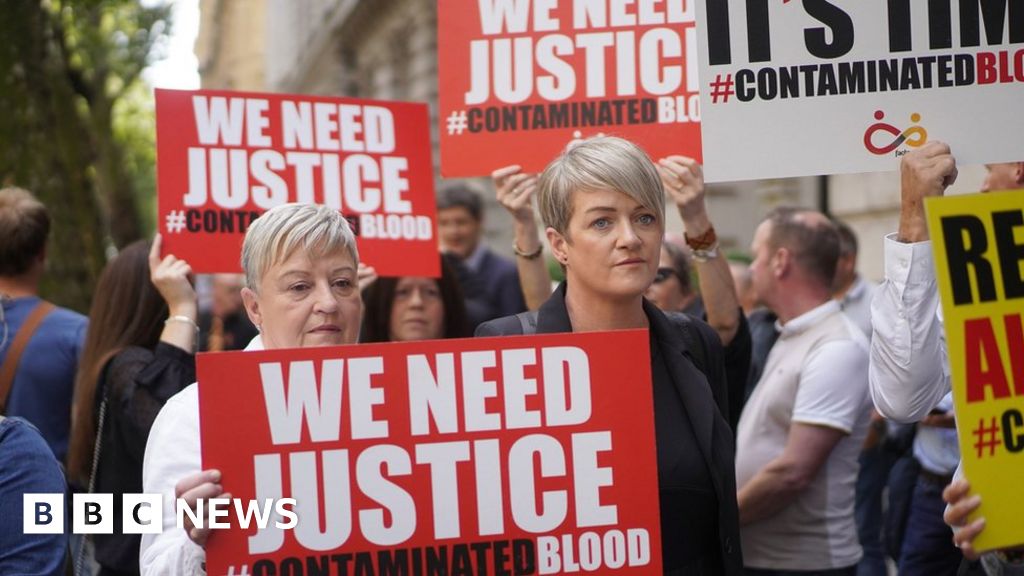

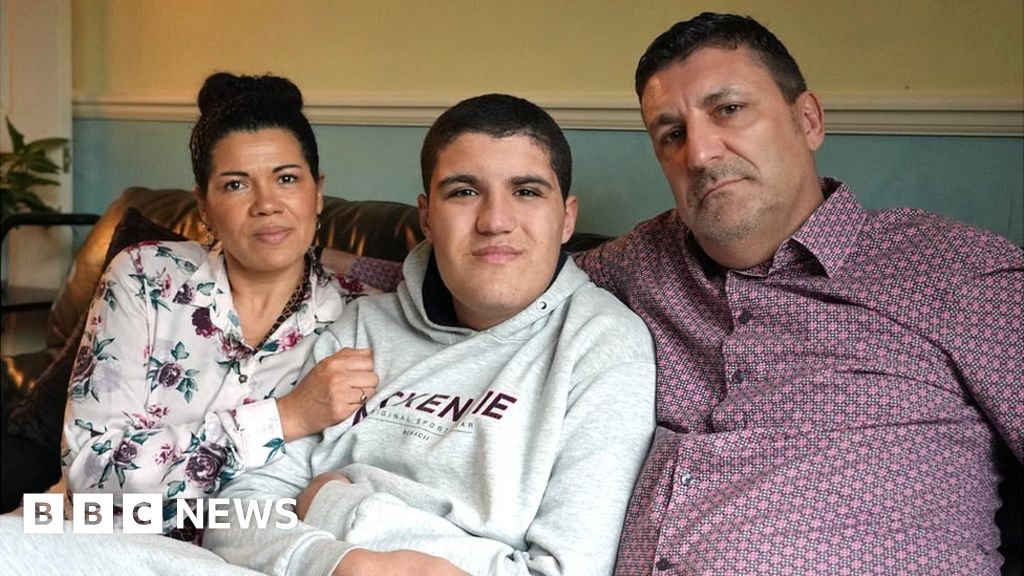

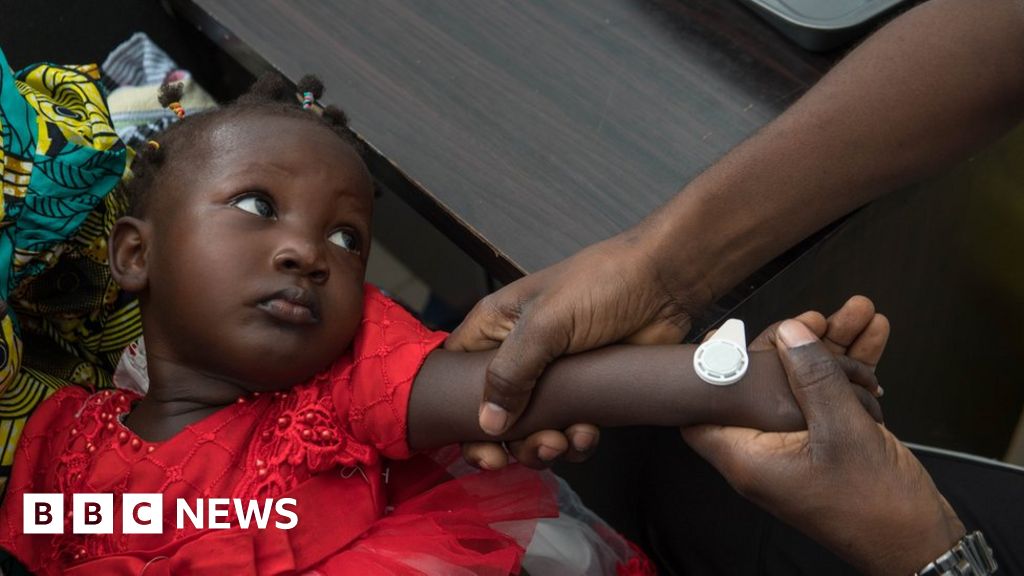

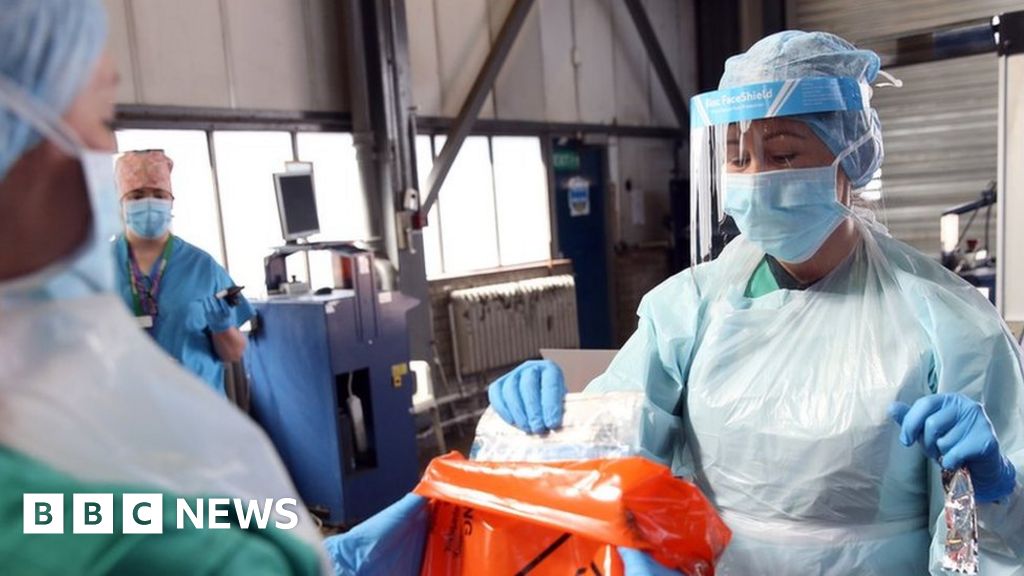
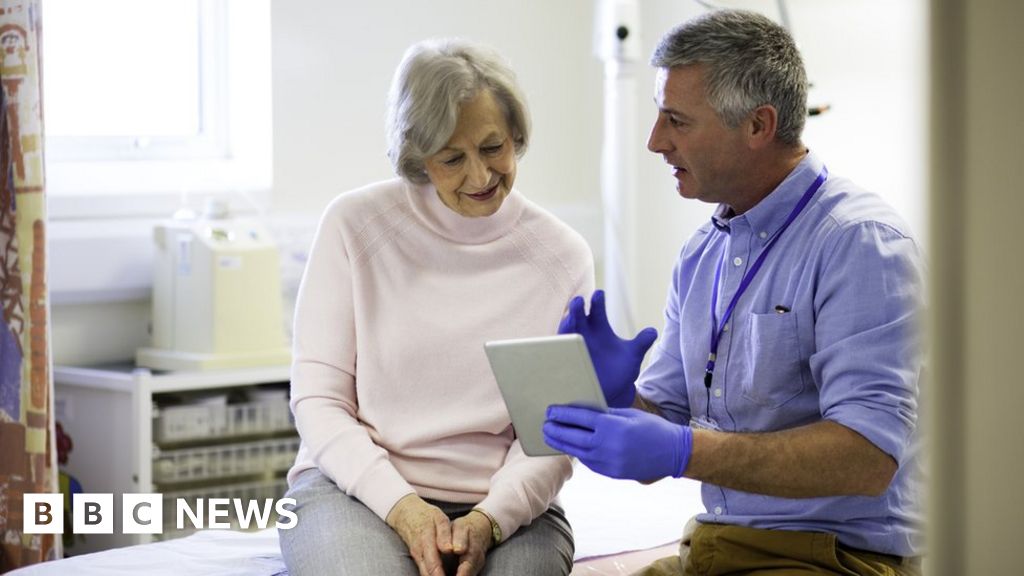













Comments